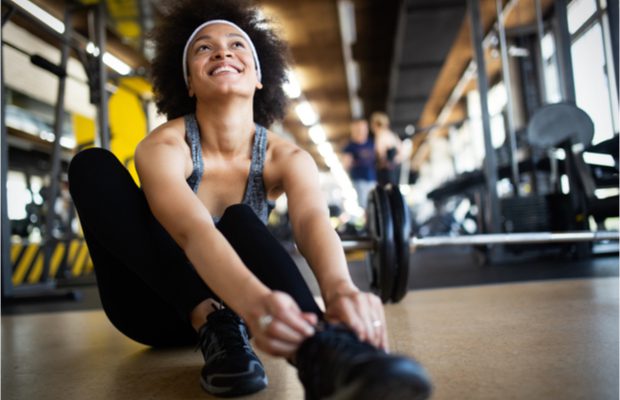
This is Part Four of a five part series on the elements of well-being by Steven Trotter.
Read Part One here.
Read Part Two here.
Read Part Three here.
One of the questions I am often asked is, “What’s the difference between wellness and well-being?” At the surface, it’s a hard question to answer, but if we peel back the layers of the well-being onion, we can uncover more depth on the topic.
According to Webster’s dictionary, wellness is defined as “the quality or state of being in good health especially as an actively sought goal,” and well-being is defined as “the state of being happy, healthy or prosperous.”
In my opinion, I believe wellness has an outdated view and can be accomplished by simply checking a box. Well-being isn’t about checking a box; it’s the dials on a mixer at a concert where you have to turn-up some elements while dialing down others to achieve the desired outcome. It’s a constant flow of energy working together to create harmony within ourselves. So you might ask, what does “the state of being happy, healthy, or prosperous mean? Well, read on my friends, let’s explore physical well-being.
Physical well-being is the extent to which people can do what they want free of pain. Let’s assess the level to which you agree to the following statements:
- In the last seven days, I have felt active and productive each day.
- My physical health is near perfect.
According to Gallup, 1.5 billion people worldwide are unable to do what they want to do on a daily basis due to physical pain. The cost of healthcare is expected to rise to an estimated 5.7 trillion dollars by 2026 which is almost 20% of the gross domestic product.
I will make an assumption that the majority of you reading this say physical well-being is the element you understand the most. Physical well-being is more than just fitness and/or exercise; physical well-being is an outcome delivered by three pathways including exercise, sleep and nutrition. Let’s discuss.
Exercise
The physical activity guidelines for Americans changed in 2018 to be simplified. For the first time ever, the goal is to decrease as many barriers to entry as possible. The 2018 guidelines didn’t prescribe a detailed exercise prescription of a FIT-VP; it simply stated just move. Many of us operate a lifestyle in which if we don’t make it to our scheduled 5 p.m. OrangeTheory Fitness, F45, CrossFit, etc. workout, we do nothing. Dr. Michelle Segar explains this concept in her book, No Sweat. We have created a false mentality that exercise has to be all-or-none, and we forget that some movement is better than no movement. Just 20 minutes of exercise each day will boost our mood. A comprehensive study of more than 70 trials found that movement and exercise were more effective in eliminating fatigue than prescription drugs.
Nutrition
Thoughts become actions, but just knowing we should eat well doesn’t necessarily change our behavior. One research study found that just knowing eating fried food puts us at a 30% greater risk of having a cardiac event in the future doesn’t change our immediate behavior. We would like to think nutrition is as simple as a caloric balance of calories in versus calories out. Nutrition is a little more complex, especially in the U.S., where we have gotten away from the primary purpose of food as a fuel source and we have shifted the focus to associating food with emotion. Think about how we celebrate many events such as holidays, birthdays, awards, births and even deaths with food. We don’t need to necessarily dissociate food with emotion, but what we do need to do is make smaller, smarter choices along the way just as we would with our financial well-being.
Sleep
Sleep is your nightly reset button; it’s the body’s version of unplugging and plugging back in. Just as all food and exercise aren’t created equally, sleep isn’t either. Sleep requires both quality and quantity. You should get seven to eight hours of sleep each night. It’s interesting to note that getting more than nine hours of sleep each night can have similar negative effects of not getting enough sleep. If seven hours of sleep seems impossible, just adding 30 minutes on to your existing sleep schedule can provide substantial benefits. Quality of sleep is important, too. Creating the right sleep environment can improve the quality of your sleep. Simple tips like making your room as dark as possible, moving mirrors away from the bed and using cool, breathable sheets can bring a large return on investment.
For more information on sleep, check out my article, “5 Strategies for Successful Sleep.”
I recently encouraged my team to read “Wellbeing: The Five Essential Elements” by Tom Rath and Jim Harter. We dissected the book and discussed it at our well-being leadership workshop. One thing that sticks out for me about physical well-being is the multi-dimensional approach from exercise, sleep and nutrition.
Physical well-being, simply put, is about having good health and enough energy to get things done on a daily basis. If you are looking to improve your physical well-being, try one or more of these following tips:
- Exercise or move at least 20 minutes each day, preferably in the morning.
- Set positive defaults when shopping for groceries.
- Sleep well.
As we continue to peel back the layers of the well-being onion, remember to set yourself up for success with a balance of exercise, nutrition and sleep.










